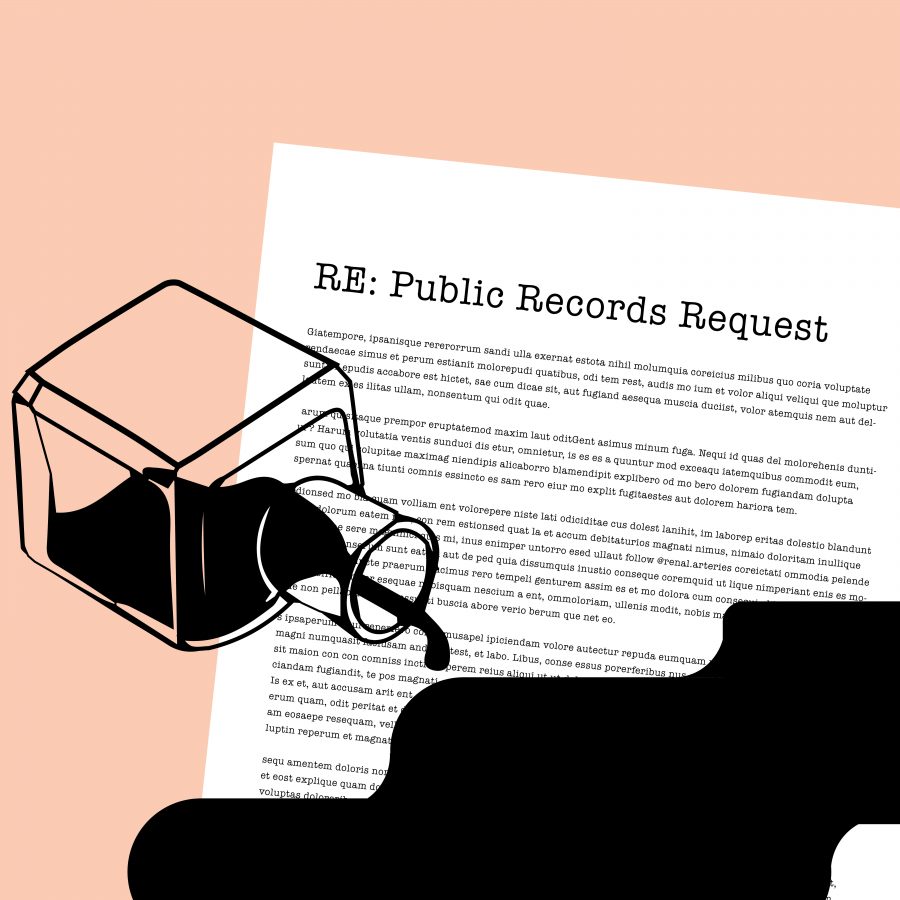How many times have UT students appealed Title IX sanctions to the President’s Office? That’s the question former Daily Texan reporter Will Clark was trying to answer late last year as he reported the story “Presidential Power,” which explains UT President Gregory Fenves’ unique power as the final decision maker in appeals cases regarding student conduct.
As part of his reporting, Clark, a radio-television-film junior, asked the University that question via an open records request, but the request was denied on basis that confidential student information could be released in the process. In his story, Clark used his knowledge of Fenves’ appeals privilege and records obtained from other universities to explain the discrepancy, but said the University’s decision to withhold the information was needlessly unclear.
“(The University is) going to use everything in their power to not give you the information,” Clark said. “It doesn’t even matter if the information is going to hurt them.”
Clark’s experience with the University is similar to that of other reporters at The Daily Texan. Long waits and large fees have created roadblocks for staffers seeking to report on topics such as sexual assault, gun violence and hazing.
As required by the Texas Public Information Act, a law passed in 1973 governing the release of public records in Texas, UT and other public institutions have 10 days to respond to information requests. Agencies are supposed to provide information sooner if the records are available, but, as most reporters will tell you, that’s difficult to enforce.
The UT Office of the Chief Financial Officer, which handles public information requests, received at least 1,700 requests in 2016 and 2017 and has already received at least that many requests in 2018, according to Open Records Coordinator Bob Davis. Due to the high volume of requests, Davis said the office marks the deadline to respond as the 10th day.
The wait doesn’t necessarily end there, either. If the office asks for clarification of a request, that clock will be reset after the requester responds.
Oh, by the way, the law also doesn’t guarantee those records will come for free.
Ten days after The Texan filed a request in September for police records involving “infringements on the University’s gun policy” since August 2016, the open records coordinator said in an email that there would be a fee to provide 25 incident reports that fell under this category.
According to an estimate provided to The Texan by the University’s open records coordinator, the cost would be $283 — or $155 if a reporter went in person to inspect the records. Previously, the University provided cost estimates to The Texan of $216 for a request of alcohol-related calls and arrests by the UT Police Department. The University also charged $108 to obtain information regarding hazing at the UT chapter of Alpha Tau Omega during the 2017-2018 school year. That fee was ultimately paid for by The Texan’s parent company, Texas Student Media.
Davis said the University has never fulfilled a request for a fee waiver to The Texan, but he said requests made by students for class assignments are often granted fee waivers.
Kelley Shannon, executive director of the Freedom of Information Foundation of Texas, said public institutions have discretion over granting fee waivers, but the law says all people who request public information have the right to receive treatment equal to other requestors.
At some other Texas universities, student papers haven’t had to pay for public records. At North Texas Daily, the University of North Texas’ student paper, Director Adam Reese said their paper has been charged for records before, but his paper hasn’t lost a cent so far.
“They’ve never sent me an invoice,” Reese said. “Until I see one, I’m not going to pay.”
Recently, The Texan filed an information request asking for the number of fee waiver requests that have been sent to the University. The University denied this request, citing a provision of the Texas Public Information Act stating that an institution is not required to create new records to fulfill an information request.
But the University should already have these records, Shannon said.
“Information requests are in-and-of-themselves public records, and the fee waiver requests are usually part of the information request,” Shannon said.
Information requests are usually made via email. According to the UT-Austin Record Retention Schedule, the University is required to maintain email records related to public information requests for at least one year.
Kristi Godden, a lawyer who previously worked in the Open Records Division in the Attorney General’s office, said slight errors or misstated words shouldn’t affect the outcome of a request.
“The Public Information Act does require a governmental body to make a good faith effort to try and match up what they do have,” Godden said.
Earlier this year, citing low page traffic, UT institutions ceased online publication of filed open records requests — a practice that is not mandated by the Texas Public Information Act.
Although not against the law, Clark said actions like this make it seem as if UT’s public information office is becoming less transparent.
“The more they push back, the more we’re going to want to dig deeper,” Clark said. “It doesn’t lay the groundwork for a good relationship between an open records office and a student paper.”





















